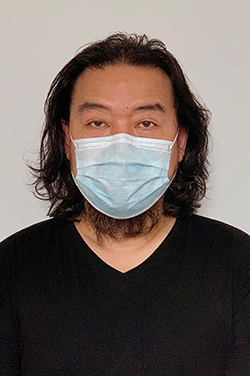Song Dong


Mr Song Dong
Honorary University Fellow (2020)
Life is art and art is life. This is the philosophy upheld by Song Dong. Mr Song is an internationally renowned contemporary Chinese artist, and he is widely acclaimed for his artworks that take the form of performances, installations, sculptures, videos, photography, conceptual paintings, dramas and curation.
When Mr Song started learning art at a young age, he thought art was painting, sculpture, dancing, drama or film, but he later realised that everything can be art. Inspired by this idea, Mr Song attempted to work with real-life, resulting in creative works that use a range of quotidian objects, and performance, photography and video footage reflecting on the themes of memory, personal relationships and the impermanence of change.
Born in Beijing in 1966 on the eve of the Cultural Revolution, Mr Song has lived through many of modern China’s momentous events. He was a teenager when China embarked on its reform and started to open up. When he was admitted to the Capital Normal University in Beijing, it was shortly after the New Wave Movement of 1985, during which thousands of young Chinese artists, seeking a new artistic language, began to create conceptual and provocative work. Living through these important historical moments left an indelible mark on his psyche that is subtly reflected in his work.
Mr Song held his first solo exhibition, “Show of Oil Paintings”, in Beijing in 1992, but he then went on to abandon painting in favour of conceptual work. This path was financially risky, given that only very discerning collectors are drawn to installations and conceptual work, but he persevered. As part of the first generation of conceptual artists in China, he has lived through the entire spectrum of the development of the field, from its early days on the periphery of China’s art sector to its mainstream acceptance today.
Two themes run through Mr Song’s work – the ephemeral nature of experience and the deep endurance of family bonds, which shed light on wider social concerns.
Writing Diary with Water is an ongoing conceptual performance project inspired by his childhood memories. Since the Song family could not afford expensive ink and paper, Mr Song’s father encouraged him to practise calligraphy with water on a stone. In 1995, Mr Song began to write his diary in water on a block of stone with a calligraphy brush every day. The invisible text disappears as the water evaporates, referencing the fleetingness of life.
Two important works, namely Touching My Father and Waste Not, are rooted in his relationship with his parents. Touching My Father is a triptych presented over a period from 1997 to 2011. The videos, in which Mr Song projects an image of his hand over his father’s body, record a breakthrough in his relationship with his father. Waste Not, on the other hand, revives the memories of his mother, who was distressed by the sudden death of her husband, and who became obsessed with hoarding domestic objects.
Waste Not was first exhibited in Beijing in 2005, and the installation features over 10,000 objects, including pots, basins, blankets, bottle caps, toys and a collection of soaps that Mr Song’s mother presented to him as a wedding present. These common domestic items struck a chord with ordinary visitors who recalled them from their own homes, reflecting how uniform people’s possessions were in the 60s and 70s when a scarcity of necessities made hoarding a useful survival strategy. Mr Song describes the project as an opportunity to “learn from their generation for a second time”. The title of the artwork is the phrase his mother used to encapsulate her philosophy: wu jin qi yong or “waste not”.
The installation has travelled around the world, with exhibitions in major galleries in Asia, North America and Europe. Each staging of Waste Not remains a family event, with Mr Song’s sister, his wife and daughter participating in its assembly. The staged exposure of his personal treasure trove of memories also provokes reflection on traditional Chinese values and its rapid modernisation, the universal experience of family bonds, the relationship between the individual and society, and between change and permanence.
Mr Song’s work has been exhibited at Kassel Documenta, and biennales in Venice, Sao Paolo and Gwangju. He has won numerous honours and awards, including the Grand Award at the Gwangju Biennale in 2006, the Artist of the Year (Video and Installation) award at the Award of Art China in 2010, the Artist of the Year award at the Chinese Contemporary Art Power Awards in 2012, and the Outstanding Achievement Award at the Chinese Contemporary Artist Awards in 2014, to name a few. Despite his stellar international success, Mr Song remains unassuming and sincere, attuned to the profundity contained in everyday objects and experiences, and he has retained a wry sense of humour.
Mr Song is committed to mentoring young artists through visiting professorships at Beijing’s Central Academy of Fine Arts, the Beijing Film Academy and the Guangzhou Academy of Fine Arts. In line with his philosophy of “art is life”, he believes that art is not something that can be taught. To him, one can learn in school, in work and in life. Learning in life is cost-free and it takes no standard format. It is not confined to a classroom, as everywhere can be a classroom. Every single object, every process and even invisible but perceivable elements can be inspiring.
As HKBU is also committed to putting creative media and practice at the forefront of teaching and research, Mr Song’s wealth of artistic experience and his innovative worldview will no doubt be an invaluable asset to the younger generation of artists, as well as the university community as a whole.